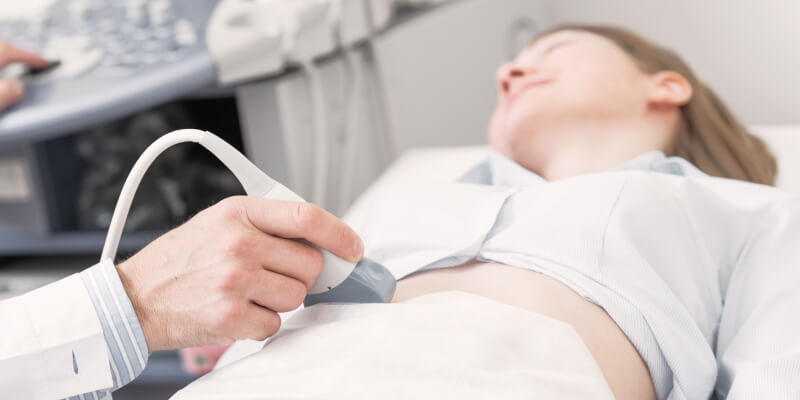
The placenta has already begun to form this week. She will play an important role in the production of specific hormones and nutrition of the child. At this stage, the embryo is smaller than a grain of rice, but each of its cells is programmed to perform a specific function.
Implantation time! This week, a tiny blastocyst has found its way to the uterus and is eyeing a suitable place to settle in for the next 36 weeks or so.
Implantation usually occurs around the dates when the woman expects the beginning of the next period. Therefore, many women are not surprised if they have a little bleeding in the 4th week. But if the discharge is modest, it may not be menstruation, but implantation bleeding.
The wall of the uterus at this stage is so saturated with blood that any damage to it can lead to easy bleeding. Some women claim to have felt the moment of implantation. Who knows, maybe this is really possible.
Am I already happy?
If your period doesn't come on time, chances are you suspect what might be the cause. You may be experiencing early pregnancy symptoms and your body feels a little different than usual. But don't worry if your feelings haven't changed in any way. Even if you are in the 4th week, your body may not have time to reorganize yet.
Pregnancy can now be confirmed with a blood or urine test. Both methods are very sensitive to an increase in the concentration of human chorionic gonadotropin (hCG). You can do a pregnancy test at home, and the best time to do this is in the morning, when the concentration of hCG in urine reaches its peak.
- You may feel cramping in the lower abdomen. You may have a heaviness in your abdomen and increased gas production.
- You may feel nauseous, especially if you haven't eaten for a while. The smell or even the thought of certain foods can be disgusting to you, although you usually enjoy them. Coffee, fish, red meat, and even pet food can cause nausea.
- Your breasts become softer and your nipples are especially sensitive. It may grow larger and more rounded, especially if you are small.
- You may be more likely to go to the bathroom to pee. This is due to an increase in blood volume and pressure from the uterus on the bladder.
- You may have a slight discharge from implantation bleeding.
- You may be experiencing a mixture of anxiety and excitement right now. And you often run to the toilet to check if your period has started.
- You may feel the same as before your period. Many women this week are a little more emotional, easily annoyed and not in the mood at all.
- You may be upset if you want to get pregnant, but the test is negative. Don't keep it to yourself - discuss your emotions with your partner or best friend.
- The opposite case can also turn into stress - if you did not plan to become pregnant, but the test showed two strips.
- Your baby is the size of a poppy seed this week. It's only begining!
- In the 4th week of pregnancy, a lot of organizational work takes place inside the embryo. Three separate layers of cells begin to form.
- The ectoderm (outer layer) will eventually become the baby's skin, eyes, hair, nervous system, brain, and teeth.
- The middle layer (mesoderm) will become the baby's skeleton, muscles, kidneys, soft tissues, and the circulatory system.
- The inner layer (endoderm) will eventually become your baby's internal organs.
- Once a cell acquires a certain function, it will no longer be able to transform into a different type of cell. Each of them is preprogrammed and knows what to do.
Tips of the week
- Buy a pregnancy test (or two). A false-positive result during the test is impossible, but a false-negative result at the earliest possible date is quite normal. If the test is positive, keep it as a keepsake.
- Make an appointment with your doctor - the first of many.
- Avoid overheating and try not to get sick. A fever in the first weeks of pregnancy can sometimes be dangerous for the baby.
Now let's move on to week 5, when your baby finds a comfortable place to grow and develop.



